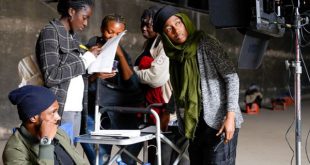
Accountability gap
In a rare show of responsibility and humility, the defence forces chief apologised to the victims of brutality during the lockdown. And errant officers have since been arrested, tried and convicted.
But Uganda’s President Yoweri Museveni, who is also the Commander in Chief of the armed forces, only directed the head of the anti-corruption unit to deal with errant security personnel after a public outcry against the military and police brutality during the early stages of the lockdown.
He also shared her mobile phone number with the public, calling upon affected citizens to report any violations by the security forces.
This was a commendable step which has contributed to reduced excesses. But it is likely a short term intervention that will not extend beyond the COVID-19 crisis. Moreover, this ad hoc ombudsman role is being undertaken by an army officer at the rank of a lieutenant colonel.
This raises concerns around independence and accountability. It is also a role based on a presidential appointment. This means it is not rooted in a legal framework defining its mandate, powers, privileges, limitations and relationship with the civilian population. This infrastructure is critical for such a mechanism to be effective and accountable.
Another legacy of military impunity exposed during the COVID-19 lockdown relates to the personalised and irregular deployment of the armed forces to safeguard private interests. Army officers were deployed to effect a land eviction against market vendors in Kabarole district in the western part of the country.
This was contrary to ministerial guidelines that no evictions should be conducted during the lockdown. It later emerged that the soldiers had been deployed following an order from well-connected individuals with an interest in the land.
The deployment of soldiers in Uganda to safeguard private land interests is fast becoming a trend. It is often done outside the realms of the law and has resulted in antagonism between the army and civilians. This suggests absence of centralised control over army deployment and functions in peacetime.
It also points to the lack of a robust civil-military regulatory framework.
How to achieve a balanced relationship
There is a need for fundamental legal reforms. Firstly, the Uganda People’s Defence Forces Act should be amended.
It should outline the protocols under which the army may be deployed during peacetime. This should include training requirements and parliamentary oversight. It should expressly prohibit deployment of the army for private interests. And laws on the use of force during peacetime should be amended to meet the highly restrictive international standards.
Legal and institutional reforms should also be aimed at creating and entrenching an independent oversight mechanism. This needs to be easily accessible by the civilian population so violations can be reported and swift investigations triggered.
The media should also be trained on reporting these violations. Lastly, there should be a national mechanism which enhances awareness about civil military relations in Uganda.
****
 The Independent Uganda: You get the Truth we Pay the Price
The Independent Uganda: You get the Truth we Pay the Price


